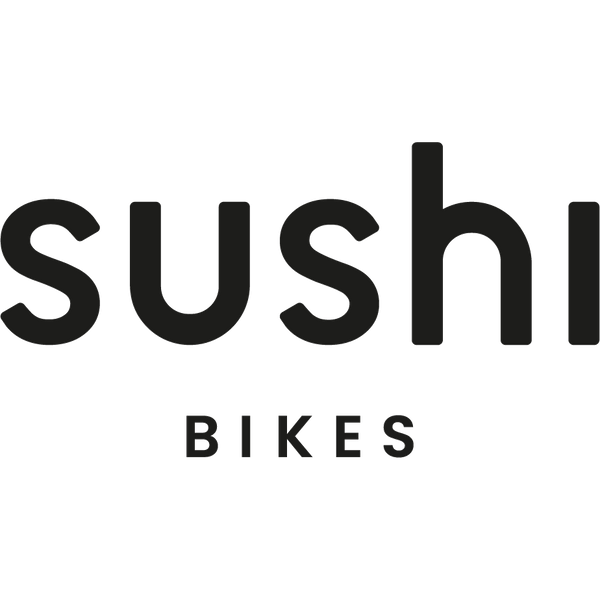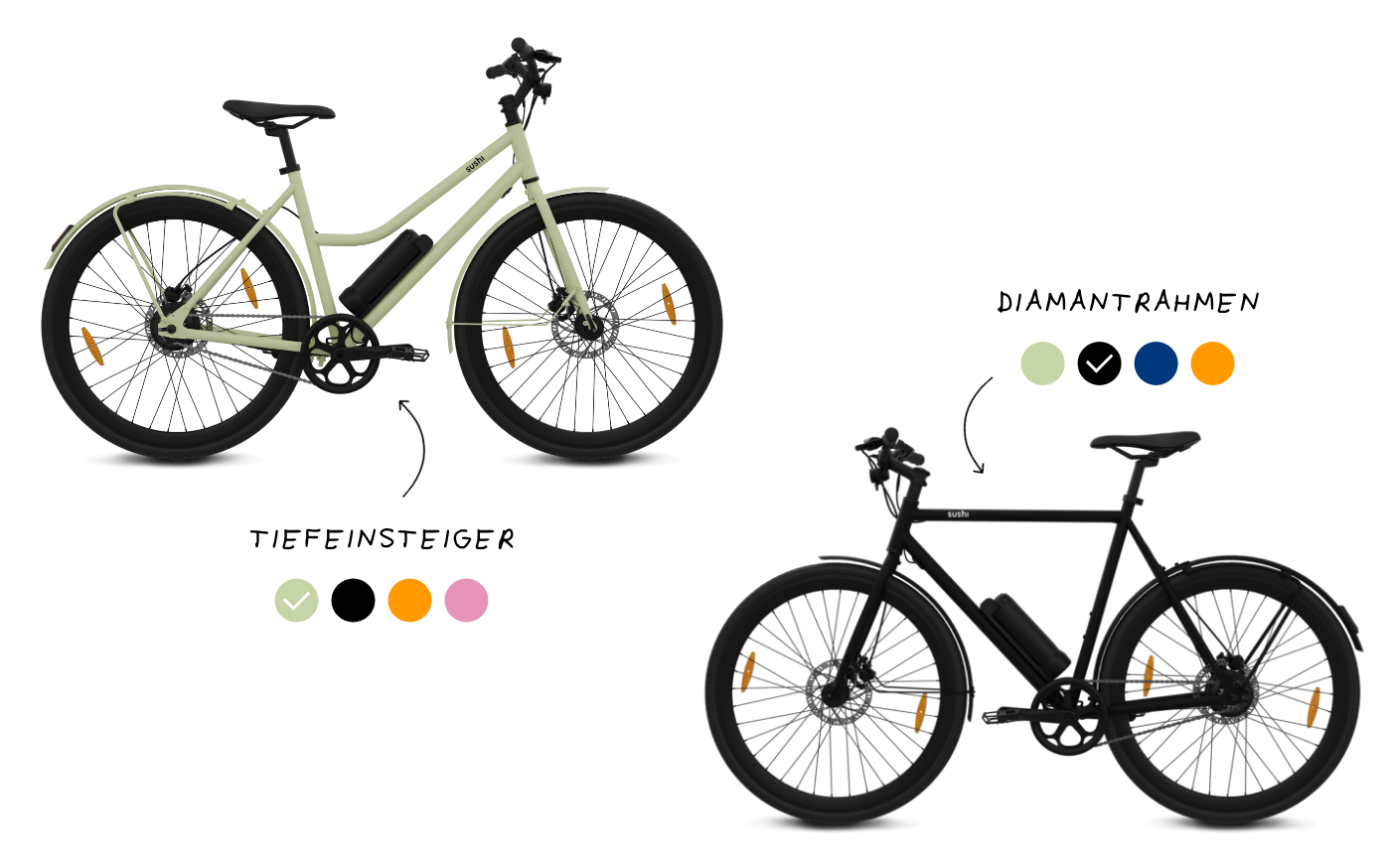Sustainability and responsibility in focus
A revolution in the cityscape and the promotion of green mobility for everyone - that is the declared goal of SUSHI BIKES. But we don’t limit ourselves to superficial eco-marketing strategies. Rather, we are proud to continually optimize every aspect of our company towards sustainability .
SUSHI BIKES not only stands for environmental awareness, but also for high quality. We therefore consciously decide against cheap goods from Asia and prefer to rely on the coveted “Made in Europe” label. Since Generation 3.0, we have been producing all of our SUSHI BIKES as sustainably as possible in Portugal. We strive to ensure good working conditions on site and to produce our e-bikes in a resource-efficient manner.
So that shipping doesn't become a climate killer, we try to ship our SUSHI BIKES to your home as green as possible. We are constantly working to keep our ecological footprint as low as possible and to continually improve processes. With the help of ClimatePartner, we measure our emissions and create a detailed CO2 balance. Emissions that cannot be avoided are reduced as much as possible and then compensated for elsewhere.
We are currently still working on an optimal solution for recycling our SUSHI BIKES batteries. But we are not giving up and are continuing to look for ways to efficiently process and recycle batteries and other materials.
FAIR COBALT ALLIANCE: Sustainable cobalt production and fair working conditions
In 2022, we were the first e-bike manufacturer to join the Fair Cobalt Alliance (FCA). The FCA strives to improve cobalt extraction and promote fair working conditions along the supply chain. While cobalt was virtually unknown a decade ago, today it is an essential raw material for e-mobility.
Cobalt plays an important role in the production of batteries for e-bikes, pedelecs and e-cars. In lithium-ion batteries, cobalt makes up up to 20% of the weight. It helps to extend the lifespan of batteries and accumulators and thus increase the sustainability of these products.
Cobalt mining is mainly concentrated in the Democratic Republic of Congo (DRC). This country has rich natural resources, but suffers from high levels of poverty and corruption. The extraction of cobalt here is often associated with social and environmental challenges, such as child labor and environmental pollution.
For this reason, SUSHI BIKES and the FCA are committed together to address these issues and create safe and humane working conditions. We actively contribute to this through training for workers, measures to combat child labor and improving miners' incomes.
Mining cobalt presents problems and challenges. We would rather be part of the solution than part of the problem. Therefore, with our membership of the FCA we are committed to improving the situation. For a greener and more sustainable economy, not just in Europe but everywhere.
BIKE CHARTA: Shared responsibility for sustainable development
Sustainable business is a central concern for us at SUSHI BIKES. That's why we're proud to be part of the Bike Charter. This charter was launched by BIKEBRAINPOOL - a think tank made up of representatives from leading companies in the bicycle industry. The goal: working together on sustainable solutions.
The Bike Charter focuses on corporate social responsibility and sustainability in the bicycle industry and offers participating companies over 100 concrete options for action. The charter consists of a total of 18 overarching topics. The most important aspects of the charter are:
- Sustainable innovation management : promoting sustainable innovations, new business models and collaborations in the bicycle industry.
- Sustainable product design: integrating sustainability aspects into the design process of bicycle products and services.
- Avoidance of packaging: Reduction of disposable packaging and use of recyclable or biodegradable packaging material.
- Sustainable procurement and transparency in the supply chain: Collaboration with sustainable suppliers, consideration of human rights and environmental standards, and creation of transparency along the entire value chain.
- Avoiding transport through regional production locations and sustainable logistics: Reduction of emissions and dependence on supra-regional production locations through the use of regional and sustainable suppliers and logistics solutions.
- Waste and disposal management, reuse and recycling: Development of strategies for resource conservation, waste avoidance and implementation of recycling solutions in the bicycle industry.



